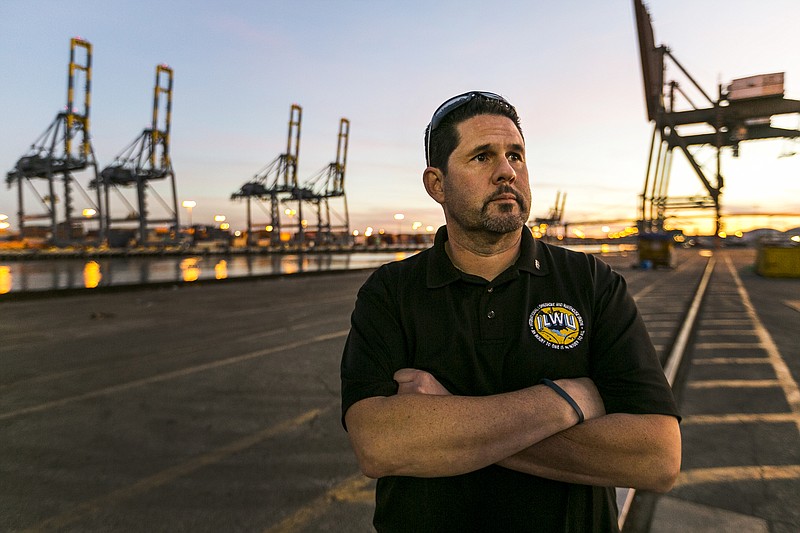Dunlap Industries has survived over its 45-year history to become one of only two remaining American-owned zipper manufacturers by adapting and meeting its customers' changing needs and schedules.
"We pride ourselves on responding quickly to customer needs and meeting their schedules, but that is becoming a real challenge right now," said Mike Kwasnik Jr., vice president of Dunlap Industries and a 30-year employee of the family-owned business started by his father.
The problem for Kwasnik's business is far from the company's headquarters in Soddy-Daisy, its U.S. production plant in Dunlap or the Asian suppliers it uses for its zippers, threads and hook-and-loops (like Velcro) products.
The delays for Dunlap Industries and hundreds of other trade-dependant companies stem from an ongoing labor dispute involving the dock workers who load and unload cargo shipments at West Coast ports. The Longshore union that represents the dock workers has been without a contract since last July and shipments at many West Coast ports have been delayed for weeks since last fall even though the workers have stayed on the job without a labor agreement.
Workers and management continue to differ over terms of a new contract and even whether the slowdown is due to dock workers deliberately slowing down the unloading of cargo shipments or whether, as the union claims, management is not adequately staffing to handle the work load.
While contract talks go on, cargo containers are backed up in ships or on docks -- sometimes for weeks -- waiting to be unloaded or transferred for truck or rail delivery across America. Christmas trees and fresh apples have been left to decay at terminals and McDonald's had to briefly ration its trademark french fries in Japan during December until East Coast ports were employed to substitute for the backlogged terminals on the West Coast.
"Operating in a global economy, this is having a major impact for many businesses," said Kevin Fletcher, senior vice president of transportation services at the Chattanooga-based Kenco Logistics, one of the nation's biggest privately owned warehouse and logistics companies. "Over the course of the years, businesses have made such improvements in their supply chains that they are operating extremely efficient and lean so when you have something of this magnitude take place, especially in such a large trade line, it's going to have a negative impact."
The port slowdown has plagued 29 West Coast ports since last fall, slowing billions of dollars of ocean-bound shipments. But there could be signs that a contract agreement may be getting close at last.
Dean McGrath, president of International Longshore Workers Union Local 23 in Tacoma, Wash., said he's heard "very positive reports" from the negotiations between the Pacific Maritime Association and the Longshore workers union in San Francisco.
Shipping lines formerly owned their own fleets of trailers, called chassis in the shipping business, and controlled who maintained them. But many of those chassis have been sold to leasing companies who want other less-well-paid workers to handle chassis maintenance.
"In a lot of cases, this slowdown has forced importers to plan farther ahead, add more lead time for shipments and, in some instances, even shift to East Coast ports which may be more expensive," Fletcher said.
Fletcher said there have been strikes in the past that have completely shut down West Coast ports. But those were usually resolved within a week or two and didn't drag on as the current impasse has done.
"We're doing whatever we can to adjust, but this slowdown has been horrible for some deliveries," Kwasnik said. "It's hard to keep doing that when they tell you one schedule one day and then can't meet that and tell you later it's going to be another couple of weeks. It's terrible for our credibility we have worked so hard to achieve."
Contact Dave Flessner at dflessner@timesfreepress.com or at 757-6340.
